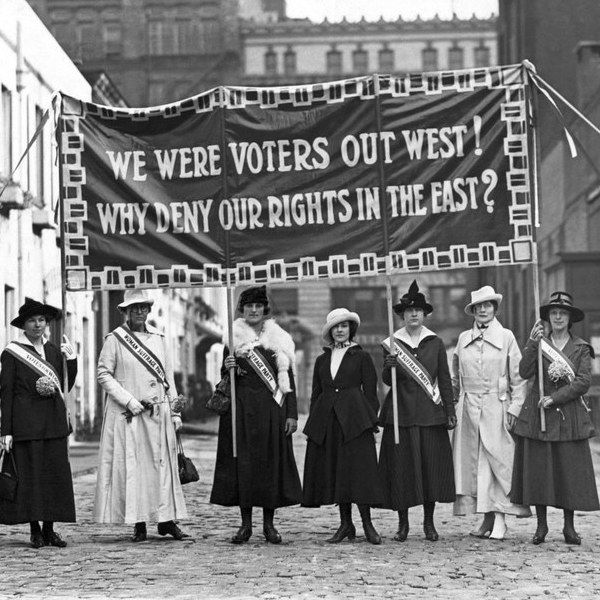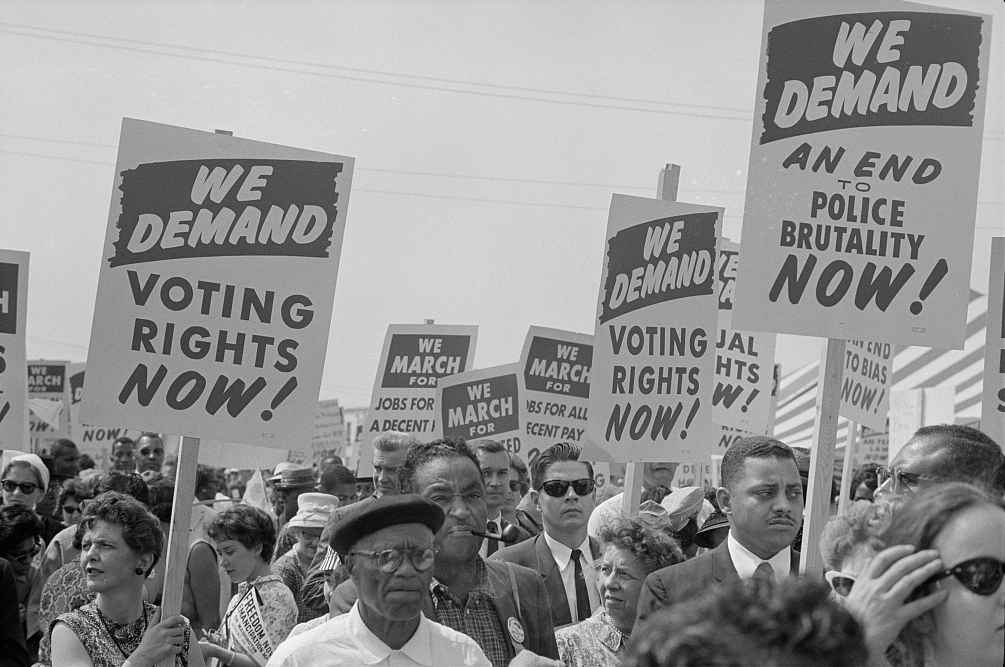I have been advocating for support of the For the People Act, H.R. 1 (FTPA), a major success for voting rights and anti-corruption legislation related to voting, such as banning both parties from gerrymandering and transparency in electoral giving, that was passed by the House in March 2021. The Senate has come up with a compromise bill, the Freedom to Vote Act (FTVA), S.R. 2747. It makes some compromises to satisfy senators such as Joe Manchin of WV, but also state election officials. In other ways it is stronger than FTPA. I recommend supporting FTVA, but check out the differences below as highlighted by the Brennan Center for Justice or read the full act itself at www.congress.gov/bill/117th-congress/senate-bill/2747/text.
Feel free to skim this if you wish and go to the links for some entertaining ways of looking at the FTVA!!
The following information is primarily from these 2 websites, www.brennancenter.org/our-work/research-reports/key-differences-between-people-act-and-freedom-vote-act (BCJ) and the Senate website, www.congress.gov/bill/117th-congress/senate-bill/2747/text (SEN).
The following Senators are the original sponsors of FTVA: Ms. Klobuchar, MN, Mr. Kaine, VA, Mr. King, ME, Mr. Manchin, WV, Mr. Merkley, OR, Mr. Padilla, CA, Mr. Tester, MT, and Mr. Warnock, GA.
- New Protections Against Voter Suppression and Attempts to Undermine the Electoral Process (Title III, Subtitles A, B, D, E & H), which FTPA did not address. These include: “restricting the removal of election officials without cause, imposing stronger protections for federal election records, protecting the vote tabulation process from interference and intimidation, prohibiting mishandling of ballots and other sensitive materials, restricting states from banning the distribution of food and water to those waiting in line to vote, and allowing voters to go to court and challenge burdens on the right to vote, including the right to have your vote appropriately counted and certified.”BCJ
- Election Day as a Legal Public Holiday (Title I, Subtitle A, Part 2). Although part of the original H.R. 1. it was deleted from the bill submitted to the Senate. FTVA reinstates it.Automatic Voter Registration (Title I, Subtitle A, Part 1) limits this only to the DMV agency, whereas the FTPA included several agencies. Nevertheless, “the FTVA provides funding to states that wantto expand automatic voter registration to other agencies, such as housing or health agencies.” BCJ
- Early Voting (Title I, Subtitle C). The FTVA also requires the uniform two-week early voting period as outlined in the FTPA but includes exceptions for vote-by-mail jurisdictions and small jurisdictions. Jurisdictions that send every registered voter a mail ballot are not required to provide two weeks of early voting, so long as they provide reasonable early voting opportunities during election officials’ regular business hours and at least one weekend of early voting. Small jurisdictions, including counties with fewer than 3,000 registered voters and certain small towns and cities that administer their own elections, are only required to offer early voting during the regular business hours of their election office and on at least one weekend
- Voting by Mail (Title I, Subtitle D). The FTVA retains the requirements that all states allow no-excuse mail voting and offer multiple ways to return ballots. It omits the FTPA requirement that election officials distribute mail ballot applications to all registered voters (although states cannot prohibit them from doing so) and allows for mail ballot voter ID requirements that are not more restrictive than a state’s in-person ID requirements.
- Voter ID (Title I, Subtitle I). The FTVA adopts a different approach. It requires any state that has a voter ID requirement to accept the many forms of ID accepted in West Virginia, including utility bills and bank statements. Voters without such identification would have to vote provisionally, subject to their identity being verified through a process similar to the process in West Virginia. [I didn’t check WV laws, but this is what FTVA states: “If a State or local jurisdiction has a voter identification requirement, the State or local jurisdiction—“(A) shall treat any applicable identifying document as meeting such voter identification requirement;“(B) notwithstanding the failure to present an applicable identifying document, shall treat an individual desiring to vote in person in an election for Federal office as meeting such voter identification requirement if—“(i) the individual presents the appropriate State or local election official with a sworn written statement, signed in the presence of the official by an adult who has known the individual for at least six months under penalty of perjury, attesting to the individual’s identity.” ]SEN
- Voter List Maintenance (Title I, Subtitle J). the FTVA slims down the restrictions on voter list maintenance. The bill allows states to mark voters as ineligible based on objective and reliable evidence, such as a death certificate or change of address form. The restrictions on some faulty methods remain, such as removing a voter from the rolls for failing to vote in an election or failing to respond to election mail. And like the FTPA, the FTVA requires states to provide purged voters with notice and an opportunity to show their eligibility.
- Provisional Ballots (Title III, Subtitle K). The FTVA contains a narrower requirement that states count provisional ballots cast in the wrong precinct only if cast in the correct county. It also includes new language prohibiting states from imposing any further restrictions on out-of-precinct provisional ballots.
- Nonpartisan Redistricting Reform (Title V). The FTVA does not include the independent commission requirement, but it retains and strengthens the general ban on partisan gerrymandering with specific court-enforceable standards, including a requirement that states use computer modeling to assess the partisan fairness of maps, and adds stronger protections for communities of color, and new requirements to ensure the redistricting process is more open and transparent. In a change from the For the People Act, partisan gerrymandering claims would have to be litigated in Washington D.C., and all redistricting appeals would go to the D.C. Circuit rather than directly to the Supreme Court.
- Campaign Finance Oversight (Title VII). The FTVA significantly scales back changes to the FEC, but the remaining reforms would still be a marked improvement to the status quo. The FTVA maintains the FEC’s existing evenly divided structure but overhauls enforcement procedures at the commission so that partisan gridlock cannot be used to block investigations of alleged violations of the law.
- Citizen Empowerment (Title VIII). The small donor matching system in the FTVA is significantly scaled back (and still does not rely on taxpayer funds). It would only be available for House elections, and only in states that choose to opt into the program. States that do not participate would be able to use the money for other purposes, such as upgrading voting systems.Campaign Finance Transparency (Title VI). The FTVA adopts a more streamlined approach, paring back the campaign finance disclosure provisions in the FTPA to key priorities such as the DISCLOSE and Honest Ads Acts. It also omits the ethics titles, which are likely to be advanced through separate legislation.
Links: Electile Dysfunction: (thanks to Sandra E. for this link!) www.youtube.com/watch?v=mlChFvmmSQM
The New Hampshire Bulletin is an independent, nonpartisan news organization:
Enjoy this Wisconsin view of voting rights from the Kenosha News, a daily newspaper serving SE Wisconsin and NE Illinois:


Some of us are STILL fighting for voting rights!!

This is important material that we all should be aware of. Please read it and share it.
Thank you for that. Anyone who reads this and wants to copy and share it, is welcome to do that for any of my posts. Please just mention my website as the original source. A lot of time goes into the research for many of my posts, not just by me, but by my sources, so I’m happy to spread the information around!